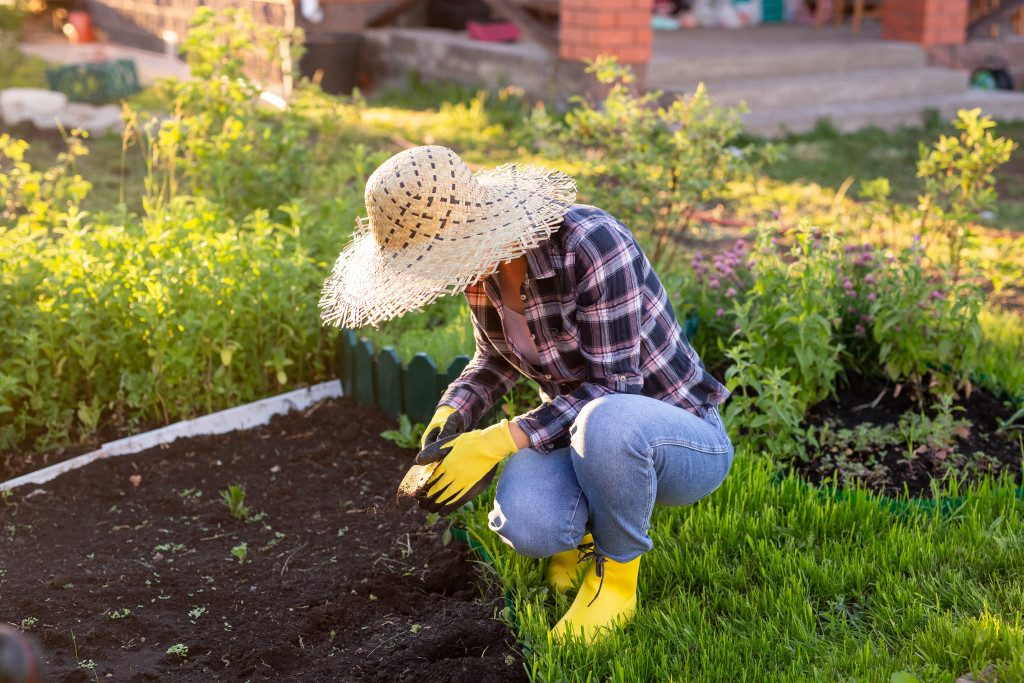Maintaining a garden can be a lot of work, but it’s worth it for the fresh produce and beautiful flowers you get to enjoy. This blog post will give you seven tips for keeping your garden healthy. With a little care, you can have a thriving garden that provides you with fresh fruits and vegetables all season long.
But before you can start reaping the rewards of your hard work, you must ensure your garden is healthy. Here are six tips to help you do just that.
1. Select the Right Site
When you’re planning your garden, it’s important to choose a spot that gets plenty of sunlight. Most vegetables need at least six hours of sun per day, so pick a spot in your yard that gets plenty of sun. If you don’t have a sunny spot in your yard, you can also grow veggies in pots on a sunny deck or patio.
You’ll also want to make sure the soil in your garden is well-draining. Standing water can kill your plants, so it’s important to choose a spot that won’t puddle when it rains. If the soil isn’t well-draining, you’ll need to look for another spot or amend the soil with sand or compost.
2. Test the Soil
Once you’ve selected the perfect spot for your garden, it’s time to test the soil. This will give you an idea of what nutrients your plants will need. You can pick up a home soil testing kit at your local nursery or hardware store.
To test the soil, follow the instructions on the kit. You’ll typically need to take a small sample of soil from your garden and mix it with water. Then, you’ll add a chemical solution that will change color to indicate the pH level of your soil. The ideal pH for most plants is between 6.0 and 7.0.
If your soil is too acidic or alkaline, you can amend it with the appropriate products. For example, if your soil is too acidic, you can add lime to raise the pH. You can add sulfur to lower the pH if it’s too alkaline.
3. Choose the Right Plants
One of the most important steps to take in maintaining a healthy garden is to choose plants that are suited to your climate and soil type. For example, choose plants that can withstand damp circumstances if you reside in a location with a lot of rainfall.
Conversely, you’ll want to choose drought-resistant plants if you live in a dry climate. By selecting the right plants for your garden, you’ll be well on your way to a healthy and thriving garden.
4. Fertilize Regularly
Fertilizing your plants on a regular basis is essential for maintaining a healthy garden. Plants need nutrients to grow, and often the soil they’re growing in is lacking in these essential nutrients. By fertilizing your plants, you’ll ensure they have the nutrients they need to grow strong and healthy.
There are a variety of different fertilizer options available, so you’ll need to choose one that’s right for your plants. For example, use a fertiliser with a high nitrogen content if you’re growing veggies. Look for a fertiliser with a high phosphorus content for flowers.

5. Water Regularly
In addition to fertilizing, you’ll also need to water your plants regularly. How often you water will depend on a number of factors, such as the type of plant, the climate, and the amount of rainfall. In general, most plants need about an inch of water per week.
To avoid hassling with a hose, you can install a lawn irrigation system. An irrigation system will water your plants on a schedule, so you don’t have to worry about it. This is especially helpful if you’re gone for extended periods or have a large garden.
6. Prune Regularly
Pruning your plants is important for maintaining their health. It allows them to focus their energy on new growth and can help them resist disease and pests. It can also improve the overall appearance of your plants.
To prune your plants, you’ll need a sharp pair of pruning shears. You can find these at most hardware or gardening stores. Start by trimming off any dead or dying leaves or branches. Then, cut back any overgrown branches.
Finally, shape the plant by trimming away any stray branches. Be sure to prune regularly, as this will help keep your plants healthy and looking their best.
There you go! By following these simple tips, you can maintain a healthy garden that will be the envy of your neighbors. With a bit of care, you’ll have a beautiful garden that will last for years to come.

